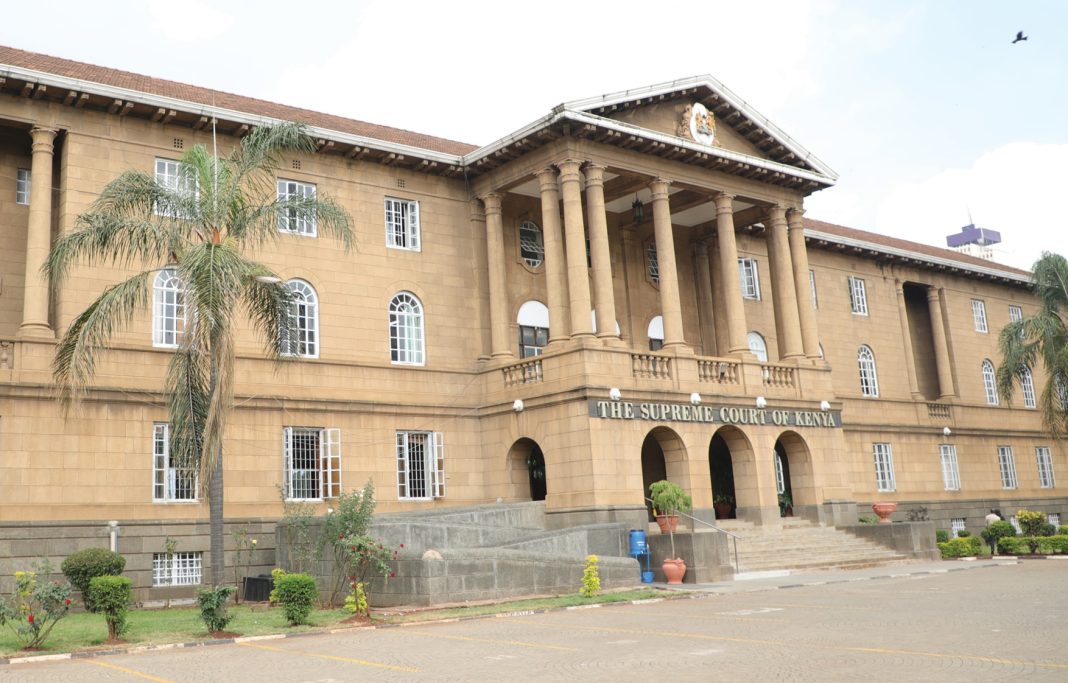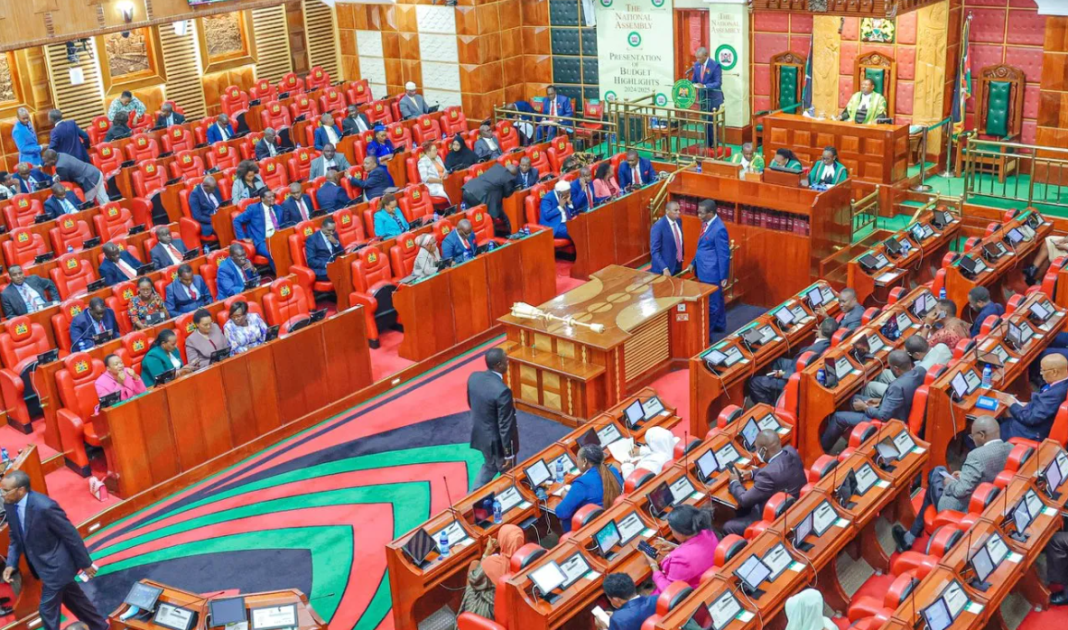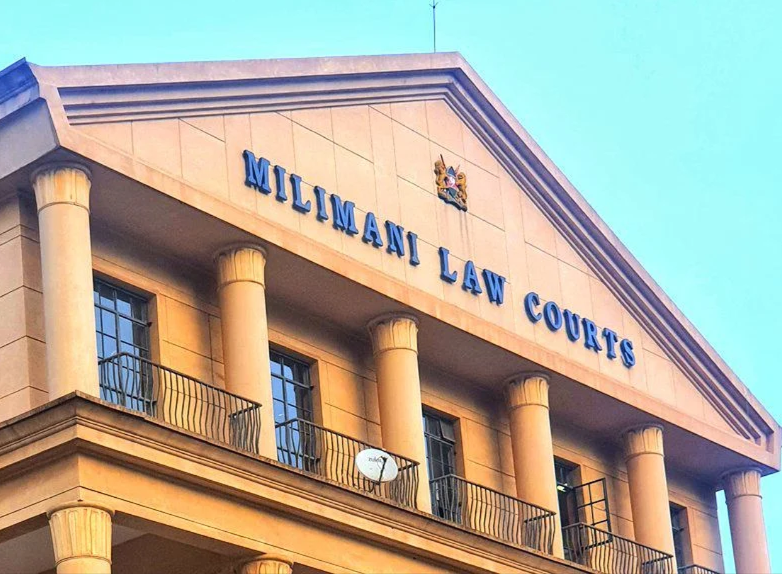The Supreme Court has declined to issue an advisory opinion to the Independent Electoral and Boundaries Commission (IEBC) on extending the already-lapsed timelines for boundary delimitation, a move that could affect preparations for the 2027 General Election.
The judges ruled that the request, filed on July 4, 2024, by IEBC CEO Marjan Hussein, was invalid since it was submitted by the Commission Secretary in his personal capacity, and not by the Commission as a collective body.
“The Court found that for the purposes of Articles 88, 249, and 250 of the Constitution, the Secretary is not the Commission itself and therefore lacked the legal standing to make such a request,” said constitutional lawyer Evans Ogada.
Ogada noted that the decision underscores strict adherence to constitutional procedure and signals that no boundary review will be carried out, which may have far-reaching implications on the 2027 polls.
In their judgment, the Supreme Court bench further highlighted Kenya’s persistent electoral mistrust, citing years of politicisation, interference with IEBC’s independence, and delayed reforms.
“This deficit did not occur by accident; rather, it is the product of decades of politicisation of the electoral process, relentless attacks on the Commission’s independence, and a failure to implement electoral reforms in good time and in good faith,” the judges stated.
The court stressed that political leaders must exercise their constitutional duty responsibly by strengthening institutions instead of undermining them for short-term gain.
The judges also ruled that in the absence of commissioners or quorum, the IEBC Secretariat cannot carry out constitutional functions, including boundary reviews, elections, and referenda.
The application had sought clarity on three issues: whether IEBC could operate without commissioners, whether boundary reviews could be conducted despite lapsed timelines under Article 89, and whether those timelines could be extended.
With the court’s ruling, questions remain over how electoral boundaries will be managed ahead of the 2027 General Election.







online pokies paypal
References:
imgo.cc
gamble online with paypal
References:
ipo.fountain.agri.ruh.ac.lk
Access your apps and files, or check in on your home PC as easily and securely as if you were
there in person. With TeamViewer’s easy-to-use remote capabilities, everyone can become a
tech hero. “Always accessible and intuitive to use, and handles all the requirements of the task. Choose if you need TeamViewer for yourself or your team.
While others compromise on security or core functionality, TeamViewer delivers enterprise-grade protection and universal compatibility in an intuitive package. Both methods allow you to send an invitation link to your partner and connect using your partner’s ID and password. Remote access should work wherever you are, whether you need on-premise or cloud access. Experience all the core functionality you need without the commitment, and scale up only if your needs grow beyond personal use.
With our free plan for personal use, you can remotely manage updates or maintenance on your devices. It gives you access to all features and functionalities in one place, allowing you to manage and control devices remotely. TeamViewer Intelligence redefines how remote access and support are delivered, empowering users to solve IT challenges faster, smarter, and with greater confidence. Access devices remotely and provide or receive support.
References:
https://blackcoin.co/free-18-unlock-your-bonus-today/
Each room also includes a private patio, offering spectacular garden or ocean views.
Located on the ground level of the hotel, these spacious rooms are fully equipped
with a Japanese-inspired spa bath and a separate spacious corner
shower. Superior Spa Rooms offer guests the ultimate relaxation experience.
All rooms feature a private balcony, stylish ensuite bathroom, complimentary
WiFi and a state-of-the-art flat screen television. The Garden Grand Suite offers guests an experience to
remember. Use your points for Xtra Credits, dining,
hotel stays and more.
Inspired by global spa culture and the natural beauty of the landscape and ocean environment surrounding us, we are proud to offer you a bespoke collection of
sublime iKOU Spa Rituals. The Vue Bar is
open dailySunday to Thursday 10am – 10pmFriday & Saturday 10am –
1am The Vue offers an inviting, open-plan space perfect for
everything from casual coffees to indulgent dinners. Our experienced team
can assist with planning and execution, plus catering and accommodation. The impressive Beachside Pavilion overlooks the Arafura sea and is Darwin’s only five-star beachside
function venue.
If you love the whole cocktail-sipping, sun-soaking beach club experience, INFINITY at the Mindil Beach Casino Resort is the ultimate venue where Darwin’s social scene hits a whole new level.
Situated on the resort’s expansive lagoon, these rooms offer swim out access,
private sun lounges plus an outdoor setting on your private balcony.
The spacious one bedroom suites offer guests an elegantly appointed lounge area, a
marble ensuite and luxurious corner spa, and a private balcony with views of the lush tropical gardens,
pool or ocean. The elegantly appointed lounge features separate living and dining areas
which can host up to six people and has two private balconies.Bedrooms
offer guests a sanctuary with a marble ensuite and a balcony
with magnificent views. Grand suites offer guests the space to relax and enjoy the natural beauty
of lush tropical gardens.
References:
https://blackcoin.co/top-10-popular-casino-games-trends-innovations-in-igaming/
Entsprechend großzügig fällt das Große Spiel in Bad Wiessee aus, bei dem insbesondere
Roulette mit acht Tischen im Fokus steht.
Trotz seines vergleichsweise recht kurzen Bestehens, das Casino im Kurort öffnete erstmals 1957 seine Pforten, stehen aufgrund
des hohen Besucherandrangs bereits zwei Umzüge zu Buche.
Das Auto kann eventuell im Staatstheater-Parkhaus oder in der Parkgarage Kurhaus/Casino, welches einen direkten Zugang zur Spielbank hat, kostenpflichtig
abgestellt werden. Wenngleich es keine Krawattenpflicht gibt und das Sakko auch mit einer
gepflegten Jeans kombiniert werden kann. Im Vergleich zu anderen Casinos in Deutschland ist der Dresscode in diesem Haus
etwas strenger. Bei den Slots geht es schon ab 1 Cent, während die Grenze nach oben bis zu 2.500 Euro reicht.
Regelmäßig werden besondere Events und
thematische Abende veranstaltet, die den Besuch noch unvergesslicher machen. Mit der
Nutzung der Webseite akzeptieren Sie die Allgemeinen Geschäftsbedingungen und Datenschutzrichtlinien. Wir erhalten eine
Provision von den Spielotheken für erfolgreich vermittelte Kunden. Ich habe die
Datenschutzerklärung gelesen und stimme der Verarbeitung meiner Daten zu.
References:
https://online-spielhallen.de/888-casino-promo-code-ihr-weg-zu-exklusiven-boni-und-vorteilen/